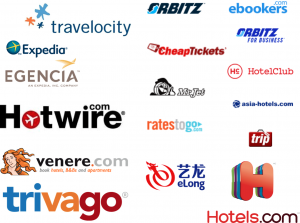
Introduction
My hard-working wife uses only a specific brand of toothpaste, Colgate. She has been long exposed to the advertisements of the toothpaste since she was small. These days, to a Malaysian child of 5-years old and above, nice foods mean McDonald’s, snacks mean Shell petrol stations and holidays means Tivago.
In fact, my wife told me that a 5-year old granddaughter of her friend already equates Tivago with holidays when the advertisement of Tivago appears on television.
Tivago is a well-known online travel agent. What is the business model of online travel agent? What is the sweet spot of online travel agent?
Tivago and other online travel agents have become the main channel to book hotels worldwide. In return, hotels secure room bookings and improve their occupancy rates. Less well-known hotels and lodgings also use online travel agents to market their facilities to consumers worldwide. The power of online agents is disliked by major hotel groups, as by using online travel agents they forgo a considerable income through paying commission fees to online travel agents.
At the same time, these hotels would lose market share to other hotels that work with online travel agents. As hotel rooms are perishable goods and cannot be reserved for future use, hotels must make a trade-off between potentially higher revenue from selling their rooms by themselves or lower revenue by selling the rooms by online travel agents.
The Business Model of Online Travel Agents
The online travel agent practices a number of business models , which are as follows:
- The merchant model,
- Hotel collect/Agency model,
- Flexible/Opaque model
The Merchant Model
The merchant model involves the online travel agent purchasing a given quantity of rooms from a hotel at a wholesale price or rate. Then, the online travel agent will mark-up the price and offer the rooms to their online customers. Under the merchant model, the online travel agent bears the risk of unsold rooms.
Extensive use of online travel agents under the merchant model has resulted in erosion of unified pricing plans that are favoured by major hotel groups.
The Hotel Collect/Agency Model
The hotel collect/Agency model involves the online travel agent agreeing to distribute the rooms at an agreed-price with the hotels. The online travel agent receives a commission on each of the room when the guest leaves.
Flexible/Opaque Model
Under the flexible/opaque model, the online travel agent distributes rooms at an agreed price set by the hotel. Then, the online travel agent matches the bids of customers with the lowest price offered by the hotels. The online travel agent makes a profit through the price difference once the hotels accept the transactions. In the opaque model, customers purchase rooms on the online travel agent’s website without knowing the hotel brand before they make payment.
The three business models used by online travel agents involve having information about the buyers of rooms that is not available to the sellers of rooms and information about the sellers that the buyers of rooms do not know.
The Online Travel Agent Industry
The online travel agency is made-up of only a few firms. Although there are frequently new entrants, they tend to be gobbled-up by existing firms. The major companies own many different websites, some of which offer different services. Most of the websites function as metasearch engines that pull prices and offerings from their own networks. The term metasearch is used, since each provider’s website is a search engine that shows listing from only that company across times location, or services.
Revenue Streams
Revenues of travel online agents are derived from three main sources.
The first revenue is agency revenue where the online travel agent’s website is simply an intermediary that connects a customer with a provider of travel services. The costs of transactions are not borne by the online travel agent. There would be no costs of revenue and costs of goods sold associated with these transactions.
The second revenue is merchant’s revenue where the online travel agent is the merchant of record, and costs associated with the transactions are borne by the online travel agents. These costs include credit card processing fees, costs associated with securing a package or deal and any other fees that might be associated with the transactions.
The third revenue is from advertising. Advertising does not have associated costs since the advertisements are displayed on company-owned websites.
Conclusion

The online travel agent industry is one of intermediaries that is insulated from and tends to benefit from the intense competition among travel service providers like hotels and airlines. It is also at a stage of consolidation that direct competitors tend to be swallowed up. The cost of entering the industry Is low, simply requiring a website infrastructure and a search algorithms. New entrants that curve out a customer base are acquired, but the websites brand is usually maintained.
Many of the well-known websites are owned by Priceline or Expedia, as shown below:
| Firm | Websites |
| Priceline | Booking.com
Priceline.com Agoda.com KAYAK Rentalcars.com OpenTable Tivago.com |
| Expedia | Expedia.com
Hotels.com Travelocity Egencia.com Carrentals.com Orbitz.com Cheaptickets.com |
| Tripadvisor | Tripadvisor.com |
| Ctrip | Ctrip.com |
The travel online agent industry is enjoying a sweet spot and this is driven by the wealthy consumers in China, Japan, Europe, US and emerging countries who want to enjoy travel experiences.
Reference:
- The Henry Fund, February 10th, 2016. Online travel agencies
- Paper submitted by my DBA students, Rajiv Mangruwa and Rosalind Sinnappan